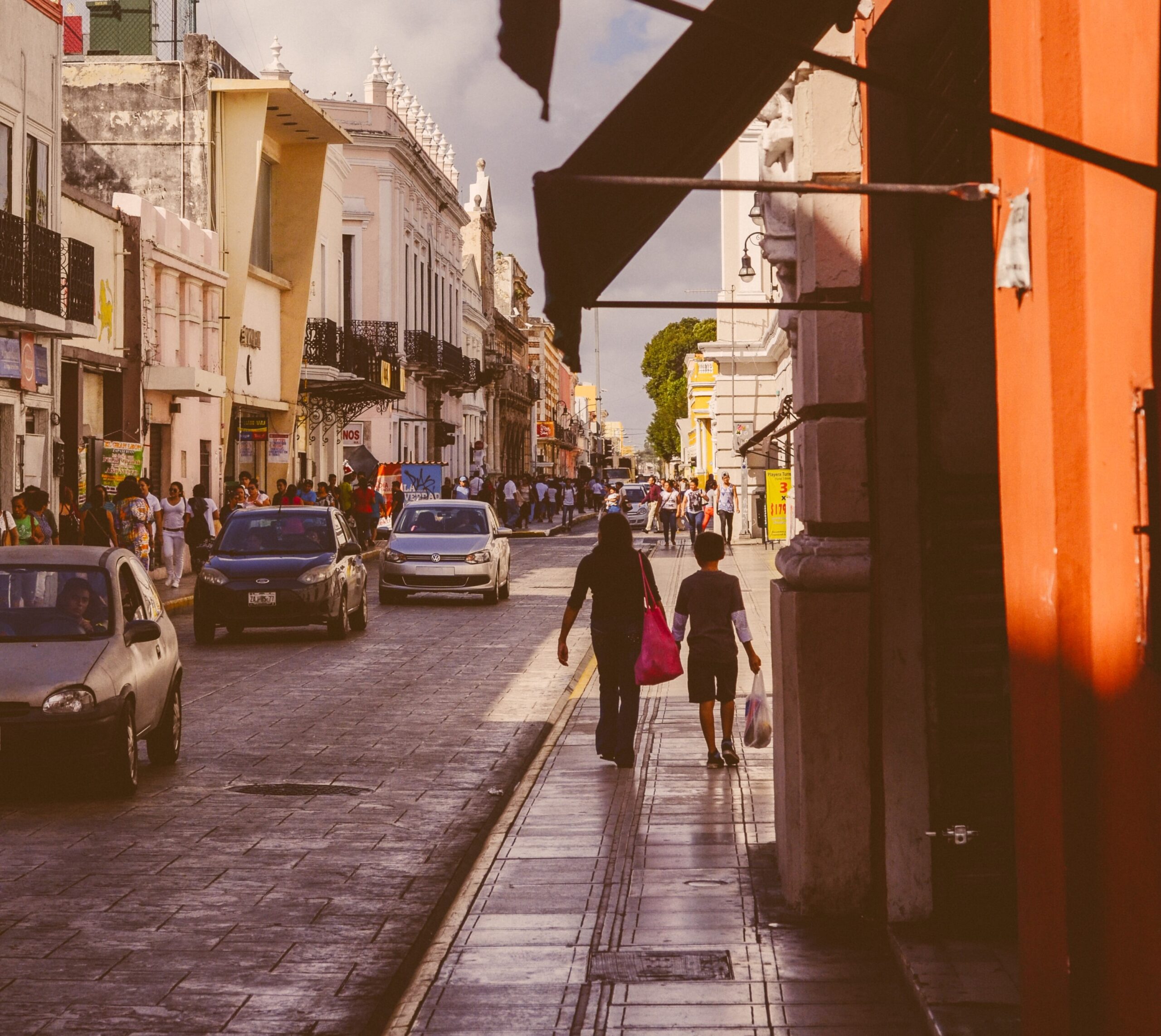Summer in the Field: Can Local Convenience Stores Help Increase Financial Inclusivity in Mexico?

By Laura Aquino
Imagine you need to withdraw money or make a bank deposit. You would probably use Google Maps, find the closest branch or ATM and choose the most convenient. As simple as it sounds, this is not an easy option in many low- and middle-income countries where banking infrastructure is insufficient.
Different countries have come up with a variety of solutions. For instance, in 2010, Mexico, like other countries, implemented a reform to authorize retail stores to operate on behalf of financial institutions. This meant that banks could hire local convenience stores, like CVS or 7-Eleven, to offer their financial services. This new way of offering banking services could have a high impact on people who have no access to bank branches, but can visit local convenience stores.
These local stores, now providers of banking services, are known as banking agents. Their creation allowed different banking services at retail stores, such as the payment of utilities, cash withdrawal, cash or check deposits, loan payments, transfers between accounts of the same bank or to other banks, check-cashing and balance inquiry.
The main objective of this reform was to enable banking agents to act as a low-cost channel to supply the services and transactions that otherwise are only available at a bank branch. In this way, clients benefit by reducing their transportation costs and time involved in going to a branch, especially in localities with no or low branch presence. At the same time, local stores benefit from having a higher inflow of clients to their establishments. Moreover, most of these banking agents are stores that clients already have a certain familiarity with, meaning their financial services are perceived as more approachable to those reluctant to trust traditional financial institutions.
While this first initiative represented a considerable increase in banking service coverage, it is still necessary to visit a bank branch to open a bank account. This policy has implications for Mexico, where only 50 percent of the population has a savings bank account.
As part of the Summer in the Field Fellowship Program sponsored by the Boston University Global Development Policy Center, I investigated whether a later reform that allowed people to open bank accounts at banking agents impacted financial inclusion. To do that, I exploited a natural experiment in which a specific bank hired the biggest chain of convenience stores all over Mexico. Overnight, it became possible to open a savings bank account at any of these stores. To measure the effect, I compared municipalities with local stores that are opening bank accounts on behalf of the bank to municipalities where people still have to go to the bank to open an account.
The effect of the policy may not be obvious, as now people are more incentivized to have a bank account since the service is closer to them and more accessible regarding transportation cost, distance and time. However, there is a possibility that half of the population does not have a bank account because of their personal preferences or their distrust of the financial sector. However, if people do not like or trust the banking system, they are still unlikely to acquire a bank account, even if it is now more convenient. This distrust effect can be considerable, especially in Mexico, where 30 percent of the population does not think that their money is safe when acquiring a financial product.
By analyzing detailed data on the number of bank accounts per bank and municipality and the number of commercial stores that offer bank accounts in each location, I estimated the effects on different outcomes. First, I find that in municipalities where local stores offer a bank account, the percentage of people having a bank account increases. I also find that people are actually using these new banking agents to open a considerable number of new accounts. Moreover, people living in municipalities with at least one of these stores use their cards more frequently when paying in different stores. This is an important effect because in Mexico, the primary payment method when purchasing is cash, so this suggests that people who have access to bank accounts use it and substitute their use of cash. Finally, results show that in those municipalities with stores offering a bank account, more stores started accepting debit cards as a payment method.
Although the evidence is preliminary, my findings suggest that people are interested in accessing financial services, but the banking infrastructure needs to be improved. For now, the only type of account offered at local stores is a checking account, but in the future, providing other financial services, such as formal credit, could have an important impact on households that otherwise would not have access to them.
*
Learn more about the Summer in the Field Fellowship Program.